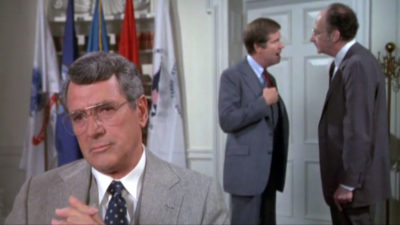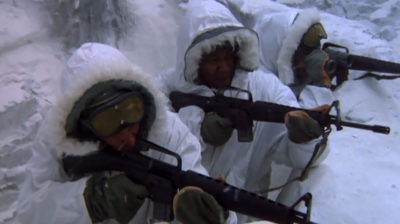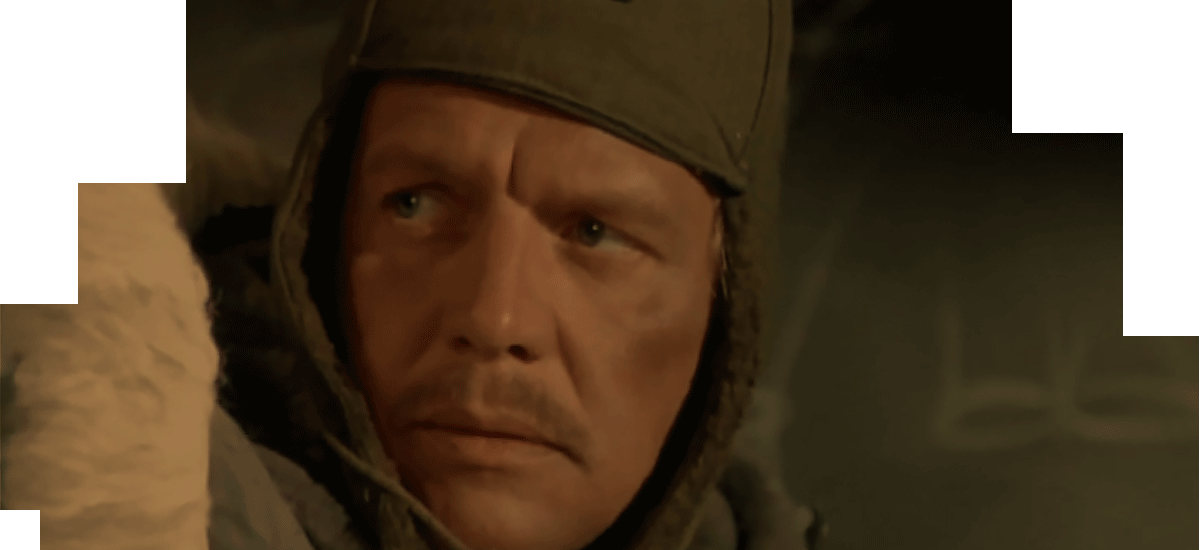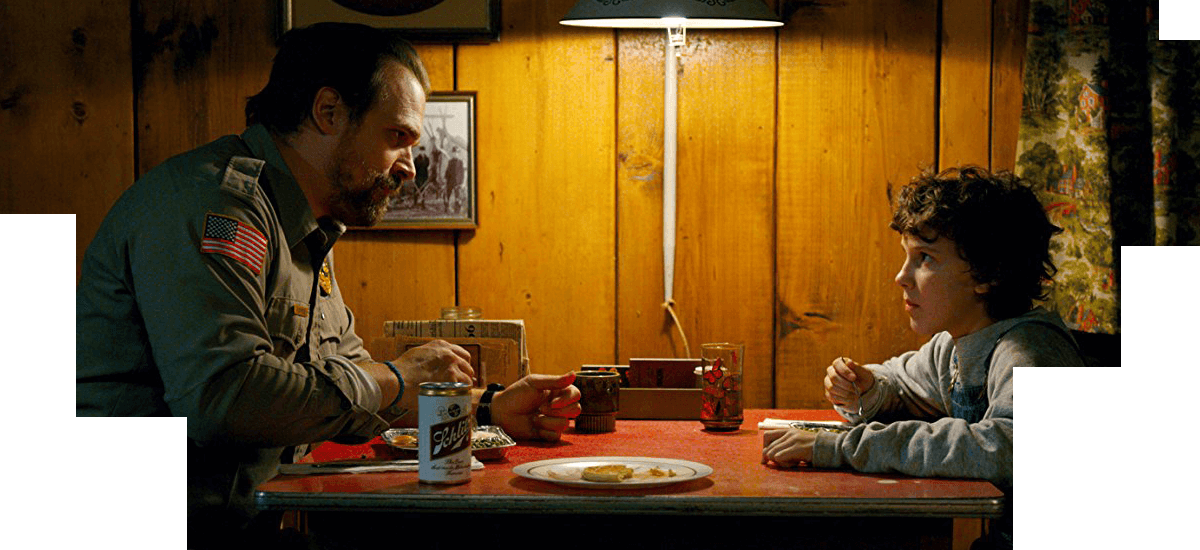Grade: A-
World War III is a made-for-TV mini-series movie that I remember seeing when it first aired 35 years ago. I was pretty young when I first saw it and don’t remember too much about it other than its setting and ending, but watching it again decades later I was surprised as to just how well this film held up over the years.
 Hidden in the shadow of other 1980s nuclear apocalypse TV films like The Day After and Threads and almost totally forgotten today, World War III takes a different approach to showing how a conflict between the Soviet Union and the US would unfold by showing both the upper-levels of how each government deals with the unfolding crisis and the troops on the ground doing the actual dying in the opening days of WW3. Here, the Soviets have sent a small team of special forces troopers into Alaska to seize an important pumping station for the Alaskan pipeline. They’re going to hold the line hostage until the US agrees to life a grain embargo they have against the Soviets which is crippling that nation. But it just so happens that a small group of Alaskan National Guard troops are in the area training, and when Col. Jake Caffey (David Soul of Starsky & Hutch and the Salem’s Lot mini-series) is sent to investigate, it’s up to this rag-tag team of soldiers to hold the pumping station in order to give the President (Rock Hudson) time to negotiate with the Soviets.
Hidden in the shadow of other 1980s nuclear apocalypse TV films like The Day After and Threads and almost totally forgotten today, World War III takes a different approach to showing how a conflict between the Soviet Union and the US would unfold by showing both the upper-levels of how each government deals with the unfolding crisis and the troops on the ground doing the actual dying in the opening days of WW3. Here, the Soviets have sent a small team of special forces troopers into Alaska to seize an important pumping station for the Alaskan pipeline. They’re going to hold the line hostage until the US agrees to life a grain embargo they have against the Soviets which is crippling that nation. But it just so happens that a small group of Alaskan National Guard troops are in the area training, and when Col. Jake Caffey (David Soul of Starsky & Hutch and the Salem’s Lot mini-series) is sent to investigate, it’s up to this rag-tag team of soldiers to hold the pumping station in order to give the President (Rock Hudson) time to negotiate with the Soviets.
I think part of what makes World War III work so well is this dichotomy between the soldiers on the ground and the officials dealing with the crisis in the governments. With the governmental officials, each side thinks that the other will back down before going too far which allows the crisis to stumble along as each side goes to their next level of war readiness and gets more and more troops and equipment ready to fight even though each says they want peace. And for the soldiers on the ground who really don’t want to be there they realize that it’s their job to fight each other and sometimes die over something as inconspicuous as a pumping station in the middle of nowhere whether they like it or not.
 I was surprised just how well David Soul played the part of Caffey in World War III. I’m familiar with his work on Starsky & Hutch and Salem’s Lot but the role of Caffey is something he plays to perfection. At the base Caffey isn’t so much a screwup, but someone unwilling to bend to the system in order to advance his career. But in the field is where he shines, knowing just what to do and when as the Soviets cross the Alaskan frontier and close in on his men as he sets them up in a defensive position in order to stop the Soviets.
I was surprised just how well David Soul played the part of Caffey in World War III. I’m familiar with his work on Starsky & Hutch and Salem’s Lot but the role of Caffey is something he plays to perfection. At the base Caffey isn’t so much a screwup, but someone unwilling to bend to the system in order to advance his career. But in the field is where he shines, knowing just what to do and when as the Soviets cross the Alaskan frontier and close in on his men as he sets them up in a defensive position in order to stop the Soviets.
While World War III starts off a bit slow, as the movies progresses and as the tensions rise and each side follows the other in the next step towards all out nuclear war while the soldiers on both sides in Alaska jockey for position as they slowly wipe each other out, World War III becomes a very effective thriller that I’m not sure has ever been repeated in tone or structure since.
There are a few things that don’t quite work with World War III. One of those is a slow beginning. It does take a while for the story to get moving — especially since the movie is actually two separate hour and a half long films which were originally shown over two nights in 1982. And there’s also an odd sort of odd love story between Caffey and colleague Maj. Kate Breckenridge (Cathy Lee Crosby) which seemed out of place, especially to my modern eyes. I suppose maybe 35 years ago the character of Caffey being irresistible to the ladies might have seemed perfectly normal in a TV movie, but today it seems odd especially since the Breckenridge character is shown to be indispensable in fighting the Soviets later on.
Still, for this movie being made in 1982, and seemingly mostly on sound stages doubling for the wilds of Alaska unless my eyes were playing tricks on me — World War III is one taught, effective film.

